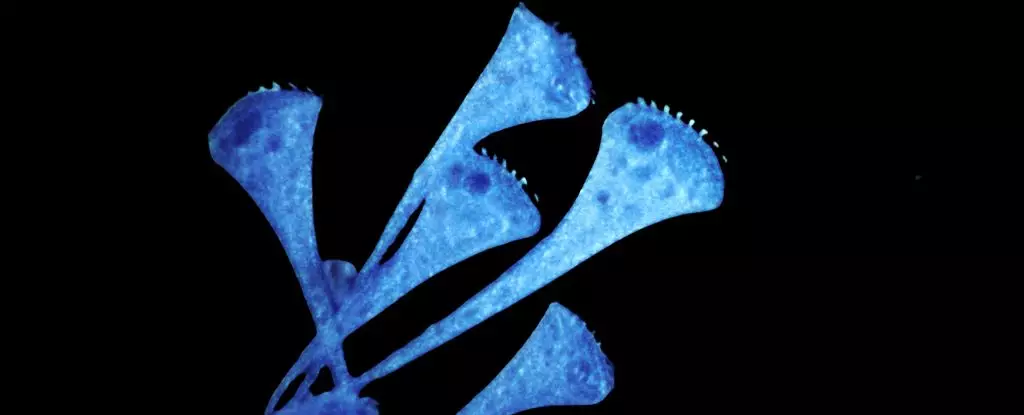In a groundbreaking revelation, recent research has unveiled that individual cells may engage in a form of learning that was once thought exclusive to organisms endowed with nervous systems. Traditionally, learning and memory have been attributed to the complex networks of neurons in animals. However, the discovery led by biologist Jeremy Gunawardena from Harvard Medical School suggests that even the simplest forms of life, including amoeba-like cells, are capable of a sophisticated type of learning known as habituation. This shakes the conventional understanding of intelligence and cognitive processes, compelling us to rethink the very nature of learning in biology.
The phenomenon of habituation refers to a behavioral change wherein an organism reduces its response to a repetitive, non-threatening stimulus. This can be readily observed in nature; for instance, wild animals often become desensitized to the presence of humans over time, and humans can similarly acclimate to persistent odors in their surroundings. These observations point to an evolutionary advantage that allows organisms to conserve energy and resources by focusing on more pertinent stimuli.
Researchers from the Max Planck Institute, guided by neurobiologist Lina Eckert, employed advanced computer modeling techniques to explore the complex molecular networks within mammalian cells and single-celled organisms like ciliates. Their findings reveal the presence of intricate systems capable of dual responses to stimuli. One response is characterized by a quick dissipation, while the other lingers longer, effectively allowing the cell to regulate its reactions to the stimulus and adapt over time. This intricate balance not only defines habituation but hints at a potential cellular memory that could influence future responses.
The concept of memory at a cellular level raises profound questions about the capabilities of life forms that lack central nervous systems. According to biologist Rosa Martinez of the Centre for Genomic Regulation, such a mechanism, if confirmed, may empower cells to not just react to immediate threats but also shape their reactions to similar stimuli in the future. This intriguing ability could dramatically influence the way we understand immunity and disease management.
While this research, as of now, awaits validation through experiments involving living cells, existing observations in organisms such as *Stentor coeruleus* provide a compelling backdrop to these assertions. The possibility that cells could embody a form of memory could guide scientific endeavors, helping researchers optimize experiments and allocate resources more effectively.
If the identified molecular networks indeed function as a cellular memory system, this could unlock new strategies in combating diseases like cancer. According to Gunawardena, understanding the mechanisms through which these cells encode information could lead to breakthroughs in the treatment of conditions where the immune system fails to recognize malignant cells. By potentially re-engineering immune responses, researchers could impart a clearer recognition of tumor cells, leading to more effective treatments.
This speculative future, while currently in its conceptual stage, embodies an exciting direction for biological research. The concept that cellular learning could be harnessed to revamp immune response emphasizes the critical importance of basic scientific inquiry in the quest for advanced medical solutions.
The revelations in this field invite us to confront preconceived notions about intelligence and learning processes. Despite previous assumptions that learning is a trait exclusive to animals with advanced brains, recent studies have brought forth compelling evidence that learning may not be confined to such narrow definitions. As Eckert and her team note, the historical context surrounding cellular learning has often been colored by ideological beliefs as much as by scientific inquiry.
This ongoing debate about the nature of learning in life forms highlights the need for an open-minded approach in scientific investigation. Embracing the complexities of life at every level, from single cells to complex organisms, could pave the way for innovative paradigms in both biology and medicine.
The research into cellular learning not only expands our understanding of intelligence but also challenges the boundaries we have set in the biological sciences. As this field advances, we are likely to uncover more about the intricate behaviors of even the simplest life forms. The feigned simplicity of amoebas and similar organisms belies their capacity for learning, inviting us to reconsider what it means to experience, learn, and remember. Thus, the journey into the depths of cellular intelligence continues, promising to reshape our understanding of life itself.

